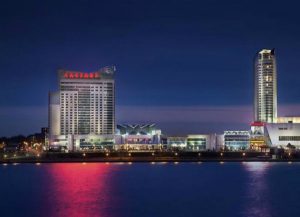 Casino players will probably take pleasure in the sounds of cards being dealt and slot machines spinning their reels as Caesars Windsor re-opens today after 60 days of a labour strike. But considering the major role of the casino to the region’s economy, fears of the long-term effects of the strike still remain.
Casino players will probably take pleasure in the sounds of cards being dealt and slot machines spinning their reels as Caesars Windsor re-opens today after 60 days of a labour strike. But considering the major role of the casino to the region’s economy, fears of the long-term effects of the strike still remain.
Caesars Windsor is set to open its doors again 11.00 a.m. on Thursday after 75 percent of the unionized workers voted Monday in favour of a tentative agreement reached earlier between management and Unifor Local 444. Ratifying the new deal, employees received three-year contracts that included slightly improved conditions in regards to wages and job security. This is the third tentative agreement proposed by casino officials after the first two deals were rejected by the union members.
With the strike ending, workers prepared to go back to the jobs, while Caesars Windsor announced rescheduled shows and concerts that were previously postponed due to the closure. Some of the rescheduled shows include Pitbull, Brian Wilson, and Blink-182, as well as Barry Manilow, Amy Schumer, and Russell Peters, whose performances were announced Wednesday. On Thursday, the casino, the hotel part and the Colosseum resume operations and can return to what they do best – offering top-notch gaming and entertainment to visitors from the area and all around the world, as pointed out by Gordon Orr, Executive Director of the Windsor-Essex Tourism Board.
While he is pleased that the strike that shut down Ontario’s largest casino resort for 60 days has finally come to an end, he admits that such a long-lasting closure would have a negative, long-term impact on the region.
How Much Will the Strike Cost to Windsor?
 Caesars Windsor workers hit the picket line in early April after they rejected a tentative agreement reached between the union’s bargaining team and casino representatives. Since then, the resort has been closed, with room reservations cancelled and all shows at the concert theatre postponed. Even though the labour dispute was resolved this week, things may not return to normal immediately. After all, more than 2,000 striking workers did not receive their regular wages for two months. This means that 2,000 families in Windsor and the area had to live with lower income, therefore cut their expenses and purchases.
Caesars Windsor workers hit the picket line in early April after they rejected a tentative agreement reached between the union’s bargaining team and casino representatives. Since then, the resort has been closed, with room reservations cancelled and all shows at the concert theatre postponed. Even though the labour dispute was resolved this week, things may not return to normal immediately. After all, more than 2,000 striking workers did not receive their regular wages for two months. This means that 2,000 families in Windsor and the area had to live with lower income, therefore cut their expenses and purchases.
Along with the purely financial effect the strike had on workers, it also showed the lack of good communication between them and their employers at Caesars. In addition, the relationship between union members and union leadership has also been put to the test. Louis Durand, professor of industrial relations at Laurentian University in Sudbury, told Radio Canada that workers’ frustration with the working conditions and with their representatives in Unifor Local 444 has accumulated over the years. According to him, getting back to normal communication will take time.
Another aspect that should be looked at is the impact of the labour strike on the economy of the region and the tourism sector, in particular. Caesars Windsor is not just the largest casino resort in Windsor and in the province. It is also one of Windsor’s major tourist attractions and entertainment venues which brings thousands of visitors to the area every day. According to Gordon Orr, the closure of the casino has reduced the flow of tourists to Windsor, but the exact cost still cannot be estimated.
It is also hard to calculate how much the city and the province have lost, as they receive a portion of Caesars’ gaming revenue. Last year’s annual payment to Windsor for hosting the casino was $10 million, which suggests that the lost revenues would probably be anything between $1 million and $2 million. The exact figures will not be known, however, until next year.



















